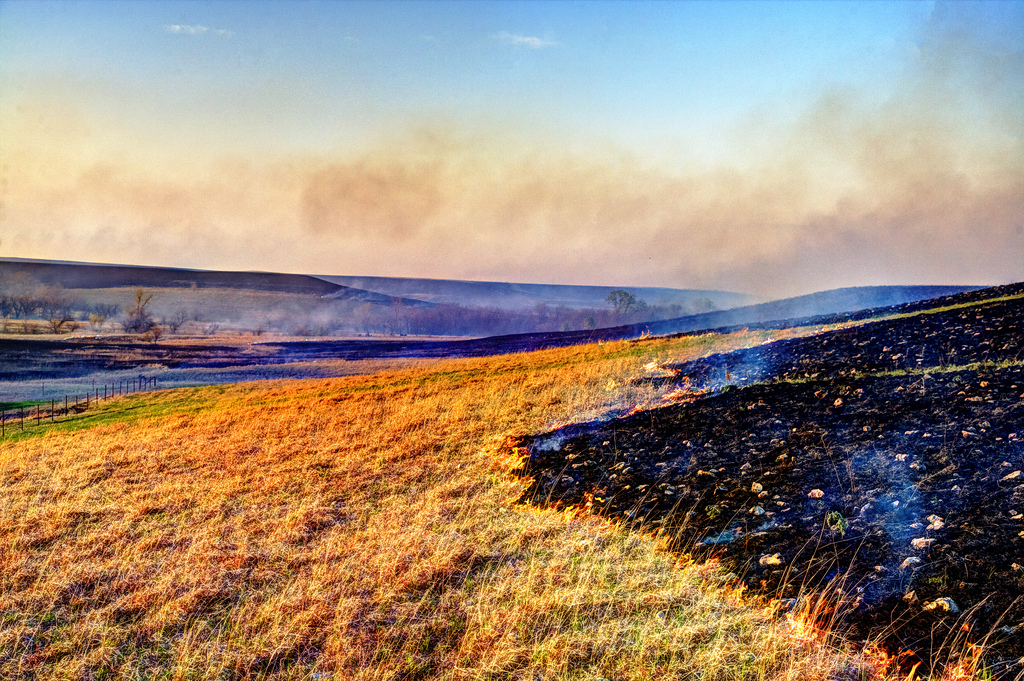During a recent flight from Chicago, my plane was flying over the vast, pale-yellow Flint Hills of Kansas when I overheard two gentlemen in front of me speaking rather alarmed about a fire below. I looked out the window and saw the long plume of smoke rising to momentarily surround our plane. A large area of blackened prairie trailed a long line of orange, snake-like flame.
“Are you seeing that smoke?” the first gentleman said.
“Yes,” said the second. “It must be a fire but I can’t see any buildings.”
Looking up from my iPad, I said, “We’re burning the prairie. It’s spring and time to start the new cycle of tallgrass for the cattle.”
They peppered me with questions about how big the fires were and how they were managed. Having grown up in the Great Plains, I never thought about how much people know about their own regions without knowing too much about others. I don’t know the idiosyncrasies of the Ohio River Valley or the complexities of agriculture in the San Joaquin Valley. But I do know about seasons in the Flint Hills of Kansas.
“We’ll finish cattle on that grass before they go to market,” I said.
“Finish?” one man asked.
“I mean that cattle will be trucked up from surrounding states and put out on the Flint Hills to gain their last bit of weight from the nutritious tallgrasses, giving them the best chance of higher prices in Kansas City and Chicago. Here in Kansas,” I said, “we finish what others started.”
We finish. What a true commentary on the work ethic of Great Plains people.

